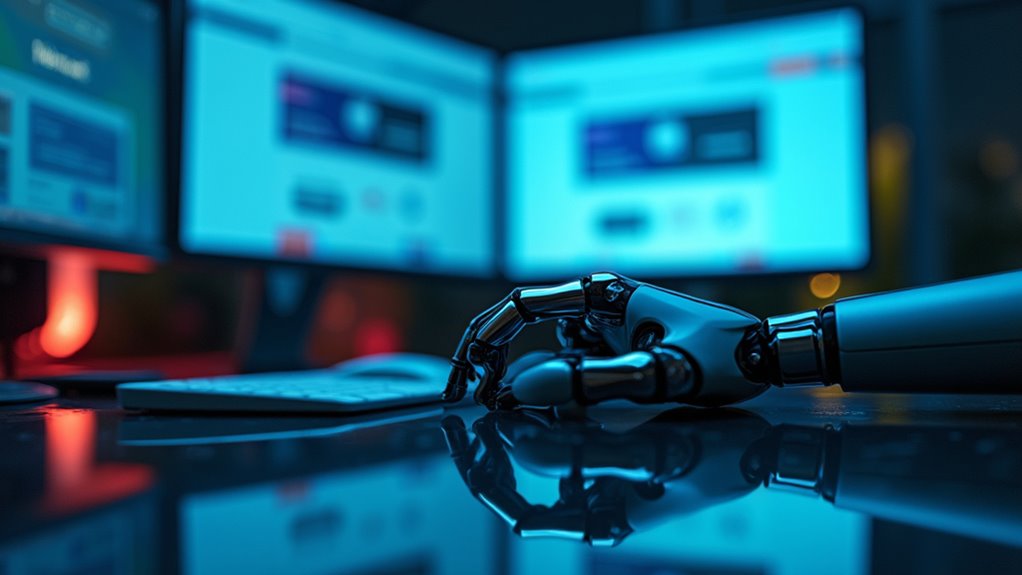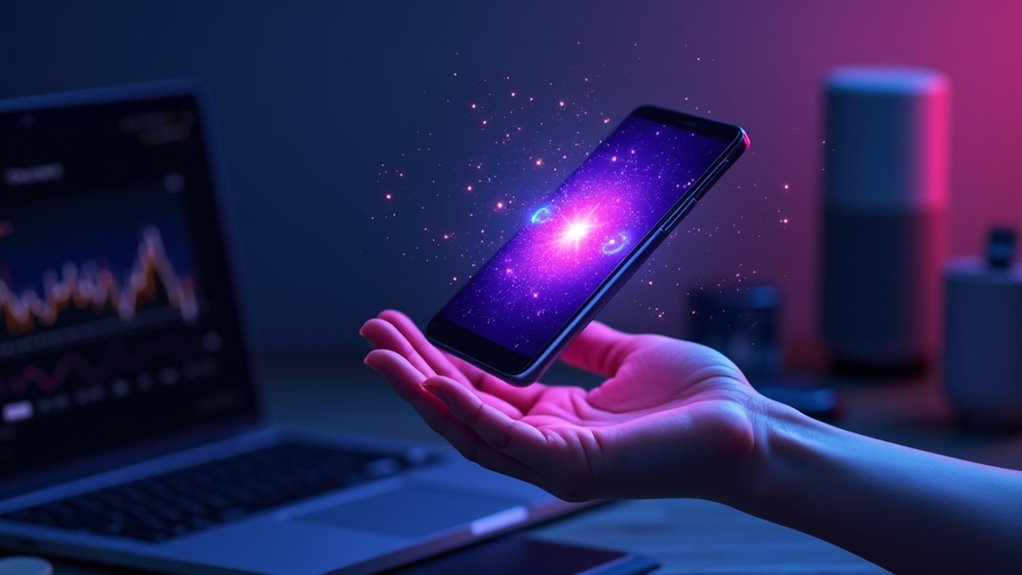OpenAI COO Brad Lightcap isn’t buying the robot apocalypse hype. He argues AI represents evolution, not revolution in the workplace—think productivity booster, not job terminator. There’s no magic AI button that instantly replaces humans; instead, AI acts more like a smart assistant that handles routine tasks while humans tackle complex problems requiring emotional intelligence and creativity. History backs this up: ATMs didn’t kill bank teller jobs, they transformed them. Stick around to see how this high-tech upgrade might actually improve your 9-to-5.
While doomsday prophecies about robots stealing our jobs continue to dominate headlines, OpenAI’s COO Brad Lightcap is pushing back against the hype with a more measured take. In his role overseeing global deployment, Lightcap has observed that business leaders often overestimate AI’s immediate impact, expecting overnight revolutions that simply aren’t realistic.
Let’s face it – we’ve all seen those sci-fi movies where AI suddenly takes over. But Lightcap insists the reality is far less dramatic. There’s no magic AI button that instantly boosts productivity or eliminates entire departments in one fell swoop. The shift is more evolution than revolution.
What’s actually happening is something more nuanced. AI is becoming a productivity enhancer, not a job terminator. Think of it as getting a really smart assistant – not a replacement.
Even Sam Altman, OpenAI’s CEO, emphasizes that AI helps people accomplish previously unimaginable tasks rather than rendering them obsolete. Altman has consistently acknowledged that while AI will have a significant role in automating software development, the changes won’t be immediate.
IBM’s experience backs this up. After implementing AI automation, they didn’t shrink their workforce – they actually invested in new roles requiring human judgment. Turns out, robots aren’t great at everything. (Shocker, right?)
The change will be gradual, giving workers time to adapt. Jobs won’t vanish overnight; they’ll evolve. Tasks may shift, but human oversight remains essential, especially for work requiring emotional intelligence, creativity, or ethical decision-making.
Remember when ATMs were supposed to eliminate bank tellers? Instead, banks opened more branches and tellers shifted to customer service roles. AI’s impact will likely follow a similar pattern.
So before you panic about your career prospects, remember that AI has significant limitations. It’s a tool, not a replacement for the distinctly human qualities that make you valuable. The World Economic Forum actually predicts AI will create a net gain of jobs by 2030, with 170 million new roles offsetting the 92 million that may be eliminated.
The most successful organizations will be those that strategically integrate AI while leveraging their human talent. Currently, AI systems are revolutionizing workplace productivity by handling routine tasks so employees can concentrate on more complex and creative work.
In other words, your job isn’t disappearing – but it might get a high-tech upgrade. And that’s something to look forward to, not fear.









